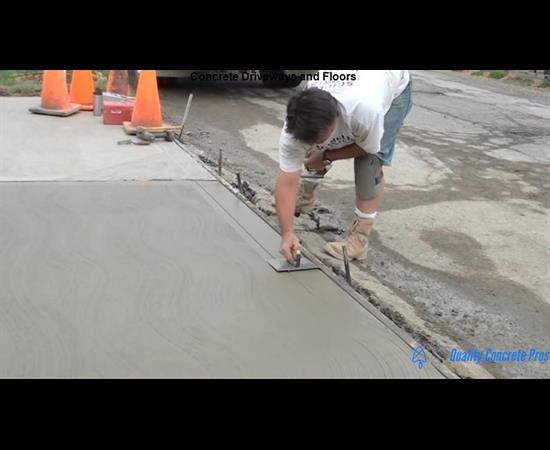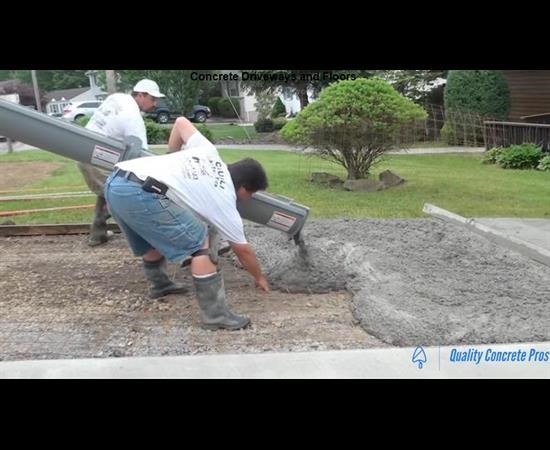
Concrete is a durable material that can be used as flooring, driveways, and much more. It comes in a variety of colors and textures to match any style. It is easy to clean and maintain. Honey Do Home Repair has the expertise to install new concrete floors and driveways for your home.
While there are many benefits to concrete driveways and floors, they also come with some downfalls. Concrete driveways and floors should be inspected for cracks regularly. Although cracks may appear small at first, they can become a problem over time.
Concrete cracks may be small and not easily visible. They are caused by subsurface movement and the thawing and freezing cycles of the seasons. When you notice a small crack, make sure to repair it right away. Cracks left untreated can turn into larger holes that can be dangerous for your family or visitors.
Concrete Driveways and Floors can be finished in a variety of ways. For example, you can create a concrete groove finish. The process involves cutting grooves into the concrete slab using specialized grooving tools and cutting saws. Concrete slabs with grooves can be designed to withstand heavy traffic and prevent surface cracks. They can also help improve water drainage by discharging water between the vehicle tread and the surface.
When paving a driveway, it is important to use the right amount of base material. A standard base thickness ranges from four to eight inches. Four inches is the recommended base thickness for well-drained soil. Eight inches is required for poorly-drained soil. Your driveway's durability will depend on how thick your driveway base is.
To prevent gravel from shifting, make sure you have enough road base. It is best to use 3/4-0 gravel, which is a blend of fine and coarse aggregate. This will provide the best compaction. In most cases, 6 inches of base material will be enough for a residential driveway. If the soil is not so well-draining, you should add an additional 2-4 inches of gravel.
You can calculate how much crushed rock is required for your driveway by using a driveway calculator. The crushed stone should be 12-18 inches in depth. A layer of crushed stone four inches thick will cover 80 square feet. A one-inch layer of pavers will require one yard of sand.
Before you lay concrete, it is important to know how much foundation you will need. You can use sandy soil as a base. If you have poor soil, you'll have to add a new layer of base material.

When constructing a driveway, the width must be big enough for one or more cars to drive comfortably without damaging the yard. It should also be large enough to allow someone to walk alongside the car while loading or unloading items. Typically, a driveway width is about 10 to 12 feet. If you have a larger car, you might consider a wider driveway.
Before you build a driveway, it is important to check city codes and local ordinances. Some homeowners associations may have specific restrictions for driveways. It is also important to consider how many cars you have in your household. If you want to park a large family vehicle, you need a larger driveway than if you're just parking two cars. You should also consider how many guests will be using your driveway.
Typically, a single-car driveway is around 10 feet wide. If you have a large SUV, or a trash truck, it is worth having a driveway at least 12 feet in width. Even if you only have one car, a narrow driveway can make it more difficult to get in and out of your vehicle. Your driveway can be up to two feet wider if you have a double garage.
Double-car driveways are typically 20 to 24 feet wide. In addition to the width of the car parking area, you'll need space to open doors. For double-car driveways, twenty feet is too narrow; two cars can't pass each other. In addition, a 24-foot width is a better option. If you need more space, you can use a curving layout.
Although the process of installing a grass driveway can be done easily, there are some requirements. Before installation, the area must be dug to a depth of one foot. Once the soil has been dug, a layer of geotextile fabric must be placed in the bottom. The gravel base is then poured and then a 2-inch layer of bedding is added. The soil must be kept moist throughout this process.
The grass should be planted one to two inches higher than the driveway. The soil should be 0.5 to 1.5 inches above the asphalt, and the grass should be at least 2.5 inches tall to avoid damaging the driveway surface. The grass should be long enough to keep mower blades and other tools from cutting into the driveway edge.
Another benefit of a grass driveway is that it requires less maintenance than concrete or asphalt. They will provide additional drainage and may even eliminate the need for a storm water collection system. A grass driveway will typically cost between ten and fifteen percent more than an asphalt or concrete driveway. They will also reduce the amount of impermeable covering around the home, which can help to reduce flood risk. A grass driveway can significantly reduce the area of impermeable covering on a property.
There are many pros and cons to grass driveways. For example, they are not as long lasting as a concrete driveway, and they require patching every three to five years. In addition, they aren't ADA compliant, and the surface is too bumpy for wheelchairs.
When you're planning a new driveway for your home, you may want to look into eco-friendly driveway materials. Concrete is a great choice as it is durable and low-maintenance. But there are many other options if you want to be even greener. For instance, you can use a porous concrete driveway, which can be both beautiful and eco-friendly. This material can be used both for driveways and sidewalks.
Aside from being more aesthetically appealing, there are other benefits to installing an eco-friendly driveway. These driveways can reduce runoff, prevent flooding, and replenish the ground water. Permeable green driveways are the most popular. They allow water to soak through and return to the environment.
Natural stone driveways are also available. This type of material is more environmentally friendly than conventional asphalt, and you can choose an environmentally-friendly type made of recycled materials. However, it can also be difficult to install. You'll need to take your own time when choosing the right material for your home.
You can recycle plastic or repurpose stone to make green driveway materials. This material is cheaper than regular concrete. Green driveways can also save you money on water, which is beneficial for your wallet and the environment.
Contact Us Today For a Free Estimate!